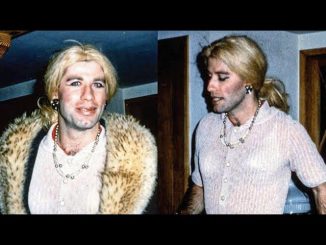Homelessness is a problem that many cities face around the world. Even though governments and organizations are trying to fix it, it’s still a big issue. One Canadian millionaire decided to make a difference in his own town with his money. Here’s his story.
In Fredericton, New Brunswick, Marcel LeBrun, a millionaire entrepreneur, took action to help homeless people in his community. Marcel, who made a lot of money from his successful social media monitoring company, decided to invest $4 million of his own money to build 99 tiny homes for those in need. He didn’t just stop at providing homes; he also created job opportunities with his unique approach. This project is called 12 Neighbours.
After selling his company and gaining a lot of wealth, Marcel wanted to use his money for good. Seeing the homelessness issue in Fredericton, he came up with the idea of a tiny home community to give homeless people a new start. He named his project 12 Neighbours and aimed to build a gated community with 99 homes and an enterprise center. This community offers both housing and job opportunities, giving homeless people a chance to rebuild their lives.

Homelessness is a big issue in New Brunswick, with about 1,600 people experiencing it in a single day last year. In bigger cities like San Francisco, Los Angeles, and New York in the United States, the number of homeless people is much higher. Marcel LeBrun saw a chance to make a difference and decided to help those struggling with homelessness.
Marcel’s project, 12 Neighbours, is not just about building tiny homes. He wants to create a supportive community for people. The tiny homes he’s building are more than just places to stay. They are fully-furnished with kitchens, living areas, bedrooms, and full bathrooms. They even have solar panels on the roofs. Marcel sees himself as a community builder, aiming to provide a better life for those in need.

To make his vision a reality, Marcel LeBrun set up a factory where skilled volunteers help build the tiny homes. Using modern techniques, the factory can produce one tiny home every four business days. Once a home is built, it is carefully placed on concrete blocks to form the foundation of the community.
Marcel believes that owning a home is important because it gives people a sense of responsibility and stability. By allowing people who have experienced homelessness to own their own homes, the 12 Neighbours project aims to empower them and create a supportive community.

Besides providing homes, Marcel LeBrun’s project also focuses on creating job opportunities for the residents. The 12 Neighbours community includes an enterprise center with a coffee bar and a silk printing business, both run by the residents. This helps generate income and encourages residents to interact with the wider community.
Like any big project, 12 Neighbours has faced criticism. Some people think it’s better to reintegrate homeless individuals directly into society rather than keeping them together in one place. However, Marcel understands these concerns and has taken steps to ensure the community is safe and supportive.
Marcel explained, “Building a few homes is just as complicated as building many, and we wanted to make a real impact on homelessness in Fredericton. If we want to make a meaningful difference, we need to build houses. If I take someone who’s been living outside and put them in a luxury apartment, they might not succeed because it’s not their community or environment.”

Marcel LeBrun knows how important safety is, so he has included top security features in the 12 Neighbours community. There are gated entrances and advanced surveillance systems to ensure residents feel safe and protected.
LeBrun mentioned that some residents face challenges when they first move in. He explained, “When someone moves into a house, they might have others trying to take advantage of them. They need to learn what it means to manage their own space and decide who they let in and out.”
One of the main goals of 12 Neighbours is to build a strong sense of community both inside and outside its gates. LeBrun wants to create a place where residents and the people of Fredericton can come together. The community has a coffee bar and a personalized printing business to encourage interaction and understanding.
LeBrun told CBC, “I see myself as a community builder. We’re not just building a small community; we’re helping to make our city better.”
Marcel LeBrun’s project to build 99 tiny homes in Fredericton, New Brunswick, is a great example of using personal success to help others. Through 12 Neighbours, he has not only provided homes for those in need but also created job opportunities and a supportive community. His efforts have given hope to many and inspired others to make a difference.
My Boyfriend Demanded That I Give Him My Card to Pay Our Restaurant Bill

When Lisa earns her much-deserved promotion, she wants to go out and celebrate with her boyfriend, Troy. At the restaurant, Lisa learns that Troy just wants to put on a façade and be the ‘man’—disrespecting her and her hard-earned role. But when he gives his number to a waitress, things take a turn, causing Lisa to embarrass Troy and walk out of their relationship.
It was meant to be a night of pure celebration. After six months at my new job, I had finally earned a significant promotion and was eager to share the joy with Troy, my boyfriend.
He suggested the new upscale restaurant in town, famous for its ambiance and gourmet menu.
“Let’s just get dressed and go out, Lisa,” he said. “We don’t do this very often, so let’s make the most of it.”
I had to agree; we rarely did this—we rarely decided to go out and indulge in anything.
“Fine,” I agreed. “A night out is exactly what we need.”
And I believed that we needed it. Mainly because, as much as I wanted to believe that Troy and I were supposed to last forever, I had begun to see some cracks in our relationship. Something just felt different.
I was happy in my job, but Troy wasn’t happy in his.
“I do so much, but nobody bothers to recognize me,” he said grimly one evening when he came over for salsa night.
Troy sat on the couch and dug his chips into the salsa and guacamole, complaining about work the entire evening.
It was because of his moods regarding work that I didn’t tell him anything good about my job.
“Maybe you just need to give it more time,” I said, handing him a frozen margarita. “You just started there a few months ago.”
“Lisa, please,” he said. “You wouldn’t understand. Let me be.”
But when I had gotten news of this new promotion, there was no way that I was going to keep it to myself. I wanted to celebrate and be celebrated, and I hoped that Troy would want to do just that.
To my surprise, he seemed really excited about it, and he told me that he was proud of me.
“Really, babe,” he said when he came over to my apartment to pick me up. “This is a big deal, and I’m proud of you.”
The evening started beautifully. Troy showed up with a bouquet of flowers, and he sat down and waited while I got ready. Usually, he wasn’t pleased if I was still getting ready when he arrived, but this evening was different.
“Come on,” I said. “I’m ready!”
Troy put his phone away and stood up, leading the way out of my apartment to where his car was waiting for us.
We drove in silence, but for once, the silence wasn’t tense—it was peaceful, and I felt that maybe Troy was changing. That he was becoming someone who wanted to be here and be present with me.
The soft lighting and the stunning view of the city skyline from our table set a romantic backdrop for our evening. We toasted to my success, with Troy raising his glass of champagne high.
“To the most amazing woman I know,” Troy cheered, clinking his glass against mine. “And to many more successes to come.”
“To us and to the future!” I echoed, suddenly caught up in the moment.
We went through the menu and ordered our meals while Troy spoke about the shared dreams that we had—from the Bali holiday that we had been speaking about for a long time, to wanting to move in together soon.
“I just think it’s time,” Troy said. “And now that you have your promotion, it will be much easier for us.”
Everything went along well, until the waitress brought our food over. Troy kept glancing at her, hoping to catch her eye—he winked at her twice.
I didn’t want to make a scene about it—Troy did this whenever he had something to drink. He behaved as though being a flirt was second nature.
But then, as we neared the end of our meal, I noticed a change in Troy. His usual easy smile tightened when the check was brought to our table. He smiled at the waitress as she stepped aside.
“You should let me pay with your card,” he said, a strain of insistence in his voice.
I was surprised. On the one hand, I didn’t mind paying for the dinner because it was my promotion and I was making a lot more money than I had before. But at the same time, I had also hoped that Troy would want to spoil me for the night.
“Why can’t you use your own card?” I asked, surprised by the frown on his face.
Troy’s irritation was barely concealed.
“Clearly because you’re the one who got promoted, and I don’t have enough money for these fancy dinners, Lisa! You know that, and yet you act like you don’t.”
I was confused by his logic.
“I’ll just pay with my card,” I said, putting my handbag on the table. “It’s not a big deal.”
My boyfriend’s face hardened as he took a sip of his whiskey—he had switched from champagne halfway through the meal.
“It’s embarrassing, Lisa,” he said. “It’s like you’re actually trying to humiliate me by not letting me be the man who pays.”
I didn’t know how to react to Troy’s words. It didn’t make sense to me. And I couldn’t understand what the waitress had to do with who was paying for our meal.
I would have retaliated and stood up for myself, but I could feel my energy being drained by Troy.
I felt cornered. And because I wanted to avoid making a scene, I reluctantly handed over my card.
Troy smirked and picked up my card, signaling for the waitress with an exaggerated flourish, presenting my card as if he were performing a grand gesture.
“I’ll be right back with the card machine,” the waitress said.
Feeling uneasy, I excused myself to the restroom. I just needed a moment to be myself. Troy did this all the time. But I thought that the evening was going well and that he was changing.
Of course, I was wrong.
Before thinking it through, I pulled my phone out and logged onto my banking app. With a few swipes and clicks, I had blocked my card.
Let’s see him pay now, I thought to myself.
On my way back, I paused near the bar, my attention caught by Troy’s laughter from across the room.
He was flirting openly with the waitress, scribbling something onto a napkin—presumably his phone number.
He handed it to her with a wink. I was stunned. I was hurt. A rush of indignation surged through me.
I returned to the table as the waitress spoke.
“I’m sorry, but there seems to be a problem,” she said. “Your card was declined.”
Troy’s confident façade crumbled as he stammered, turning away.
“What?” he asked. “Surely that can’t be right.”
Feigning concern, I suggested that Troy call the bank.
He sat back in his chair and pulled out his phone, dialing the bank and putting the call on speaker.
The representative asked for the card number, which Troy read off my card, followed by a request for the account password.
Finally, Troy hesitated. He was at a loss.
“Okay, Sir,” the person said through the phone. “If you can verify the last three transactions, it would help.”
The waitress hopped from one foot to the other.
“I can answer that,” I said. “A lavender-scented candle, some skincare products, and a new book. And Sir, the name on the card is Lisa Simmons.”
The waitress’s expression cleared with understanding, and Troy was left floundering for a response.
I then pulled out another card and paid the bill myself.
“Lucky I have two cards,” I told Troy and the waitress. “But babe, since you enjoyed the service, I think you can get the tip.”
Troy, red-faced, scrambled through his wallet, pulling out only expired coupons and a few small bills.
I stood up, waiting for Troy to say something—anything, but he sat there tight-lipped.
“Hey, I didn’t take his number,” the waitress said, a smirk playing on her lips. “I just threw the napkin away.”
“I’ll find my own way home,” I told Troy as I walked out into the night.
As I walked outside, I didn’t know if I had made a mistake. But at the end of the day, no relationship should make a person second guess themselves or make them feel like celebrating themselves is wrong.
Which is something that Troy did all the time.
I think I’m finally done with him.
What would you do?
If you enjoyed this story, here’s another one |
When Kyra discovers, by accident, that her boyfriend, Henry, has been cheating on her, she goes completely numb. Until he sends her an invoice for everything that he had ever spent on her. Fueled by her anger, Kyra fights back, exposing Henry for who he is and asking for her monetary rewards in return.



Leave a Reply